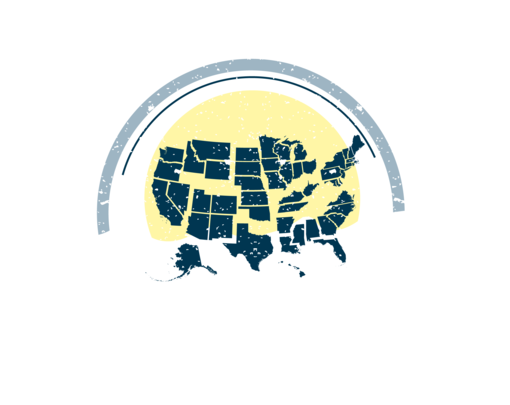Why is the Pluralist Commonwealth an American system?
William Appleman Williams, in his system-challenging book, The Tragedy of American Diplomacy, insisted that at the heart of American foreign policy was a “very powerful and dangerous propensity to define the essentials of American welfare in terms of activities outside the United States.” The imperialist thrust of American behavior on the world stage, for Williams, stemmed from the need to access markets on a larger and larger global scale, driven by the growth imperative at the heart of a capitalist economy. What was and is ‘tragic,’ about this, Williams held, was that this economic priority in practice commonly subverted (and continues to subvert) genuine American ideals of democracy for ourselves as well as others.
My own historical work on the reasons behind the decision of senior US political leadership to inexcusably use atomic weapons against the people of Hiroshima and Nagasaki unfolded within this frame—as an attempt to come to terms with the dynamics of a system that ultimately came to justify such brutal “atomic diplomacy,” even as many top World War II military leaders, including President Dwight D. Eisenhower, publicly denounced the morality of the decision. My experience as a Legislative Director in the U.S. Senate at the time of the dubiously supported Gulf of Tonkin Resolution that created the basis for America’s entry into the Vietnam War deepened my awareness of just how dangerous the current structure of power is both domestically and internationally.
There is much to be learned from experiments around the world with new forms of economic development and political governance. It is also certain that capitalism is global, and that any program for real transformation needs to come to terms with global inequities and the role of globalized trade. But I believe that, in general, we have, first and foremost a responsibility to act where we are—and that Americans have a special responsibility here, as inhabitants of the most powerful corporate capitalist nation in the history of the world. Our task—and it is by no means small—is to transform the economic system of this nation, displacing the economic engine of global expansion and the power relationships it creates and sustains. Thus, the development of the Pluralist Commonwealth, here in the United States, is not just a matter of making our economic and political system more fair and more just, but an essential long-term act of international solidarity. Our foreign policy will not change until we change.
What resources for a Pluralist Commonwealth can be found in the American tradition?
It is true that the United States has little recent historical experience with alternative ownership paradigms, explicitly framed as such. However, the history of populist development has left a much larger mark on the contours of American political economy than most realize. From the municipal socialists of cities like Milwaukee to the largely PUBLIC and COOPERATIVE history of rural electrification, there is deep tradition of practical, community-based ownership of important economic sectors. Twenty percent of American electric generation, for instance, is currently produced and distributed by municipally owned utilities or cooperatives;1 over 100 million Americans are members of one or another cooperative;2 and there are many, many more such practical on-the-ground examples (as we shall shortly explore).
More deeply, we should not ignore the specific challenges and opportunities American CULTURE offers for the development of a thoroughgoing systemic alternative. Localism and DECENTRALIZATION has a specific appeal to Americans that larger, national-level forms of public ownership like those often embraced in many European countries may not. Likewise, deeply held values around entrepreneurialism and self-sufficiency may point towards systemic alternatives grounded not in apocalyptic visions of class conflict, but in pragmatic, practical problem solving. We are a “roll up your sleeves and get it done” culture.
Clarifying the importance of multiple and pluralist forms of enterprise also allows us to recognize that even in cases where PUBLIC national or regional enterprise may be appropriate for very large-scale economic matters, they do not need to be the center of the system. There are currently more than 5.8 million employer firms in the United States; those which employ more than 5000 people account for a mere one-third of one percent of this total.3
See also:
COOPERATIVES, CULTURE, DECENTRALIZATION, PUBLIC
Further reading
Martin Buber. Paths in Utopia, (Boston: Beacon Press, 1966 [1949]).
William Appleman Williams, The Tragedy of American Diplomacy (New York: W.W. Norton & Company, Inc., 2009 [1959]).
Gar Alperovitz, “Socialism in America Is Closer Than You Think,” The Nation, February 11, 2016.
Gar Alperovitz, America Beyond Capitalism, 2nd ed. (Takoma Park, MD: Democracy Collaborative Press and Dollars & Sense, 2011).
Gar Alperovitz, The Decision to Use the Atomic Bomb and the Architecture of an American Myth (London: Harper Collins Publishers, 1995).
- 1 American Public Power Association, APPA Annual Directory and Statistical Report 2015-2016: U.S. Electric Utility Industry Statistics (Washington, DC: APPA, 2016), 28, accessed November 1, 2016.
- 2 Credit Union National Association, Monthly Credit Union Estimates (Washington, DC: Credit Union National Association, August 2016), 4, accessed November 2, 2016.
- 3 “2014 SUSB Annual Data Tables by Establishment Industry,” Census Bureau, September 2016, accessed November 1, 2016.





























